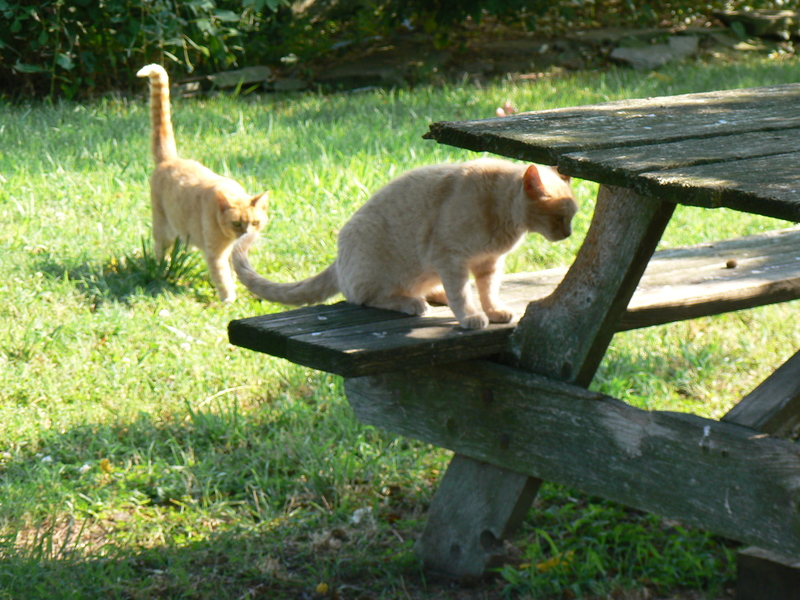A Milton couple that has been feeding feral cats for 13 years says they can longer keep doing it.
The couple, who asked not to be identified for fear more cats would be left at their home, said they feed anywhere from 80 to 100 stray cats per day in Milton and spend about $100 per week on cat food.
If they don’t help the cats, no one will, the couple said.
“When a cat is 12 years old and has been fed its whole life, it’s not going to magically get its own food,” one of the pair said.
She drives around Milton every day after coming home from her full-time job at 4 p.m., feeding eight colonies of roughly a dozen cats each, which takes her up to an hour-and-a-half per day.
“If you feed a cat for more than seven days, the ASPCA says it’s yours. To me, they’re almost like my animals,” she said. “I could never turn my back on them.”
The couple started out feeding only a few cats, but soon other people who no longer wanted to take care of cats dumped them off at their home. The number multiplied.
One of the pair says right now, while there are some nonprofits, there is no state or county agency that provides assistance for people with cat problems.
“The recommendations are, don’t feed feral cats,” said Vet On The Go Veterinarian Dr. Jane Weise. “And if you do feed them, fix them.”
Weise says at this point, it wouldn’t do much good to entirely stop feeding the 80 to 100 cats.
“Those cats that are probably too old to hunt would probably die,” she said.
The two women say they are all for helping cats, but their ability to do so is wearing thin.
“It would just be nice to have a normal life once in a while,” one of the couple said. “It does hurt our relationship.”
The couple receives some damaged-bag cat food from Walmart and Food Lion, but they pay for most of the food out of their own pockets. In addition to feeding the stray cats, the couple tries to have as many of them spayed and neutered as they can, to prevent feral colonies from growing.
Sussex County gives the couple $500 every year to spay and neuter cats, but at a little over $100 for each cat, that only covers about five cats.
The couple says a state agency should intervene; they say state officials should pay veterinarians to spay and neuter cats at no cost to cat owners.
Voucher program assists with costs
Dr. Tim Dabkowski of Rehoboth Animal Hospital said the couple can’t keep feeding and spaying and neutering by themselves.
“They need to start branching out and finding help from other places,” he said.
“They’re saying 80 to 100 cats, but how many are there really?”
Dabkowski said the best thing they could is to try to get certificates from the state allowing for significantly reduced neutering and spay procedures. The reduced procedures, he said, would allow for the spaying or neutering of three or four cats for the price of one.
The Milton couple suggests strongly that anyone who feeds feral cats or has a pet should have a caretaker lined up for their animals in case anything happens to them so the animals are not suddenly abandoned.





















































